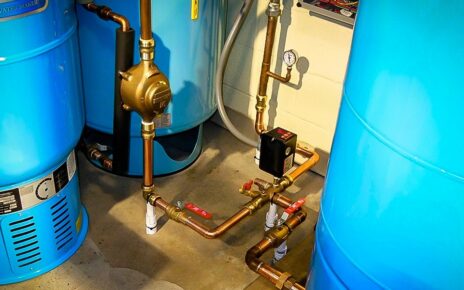In the fast-paced world of professional computing, the choice of a workstation can significantly impact productivity, efficiency, and overall success. Two prominent players in the workstation market, Dell and HP, have been vying for professionals’ attention for years. In this comprehensive comparison guide, we’ll delve into the key aspects that matter when choosing between Dell and HP workstations.
Looking for Workstations?
Browse our Server Store for Cost-Effective Dell and HPE Workstations – Brought to you by Comprint Tech Solutions Subsidiary
Explore a diverse selection of Dell and HPE Workstations at unparalleled prices within our Server Store, presented by Comprint Tech Solutions, a reputable HPE Platinum and Dell Premier partner. Whether you’re aiming to enhance your current workstation setup or establish a fresh one, we have your needs met with exceptional offers on Dell and HPE workstations. Make your purchase online today and enjoy high-quality performance without exceeding your budget!
Performance and Power:
Both Dell and HP offer an array of workstation options designed to cater to different performance needs. Dell’s Precision series and HP’s Z Workstations are renowned for their powerful performance. Dell’s Precision workstations often come equipped with the latest Intel Xeon processors and NVIDIA Quadro or AMD Radeon Pro graphics, providing exceptional processing power for demanding tasks like 3D rendering, simulation, and scientific computing.
HP’s Z Workstations, on the other hand, are known for their reliability and scalability. They often feature options for dual processors, ample memory, and high-end graphics cards, making them suitable for intensive tasks in fields such as architecture, engineering, and video production.
Design and Build:
Dell and HP take different approaches to workstation design. Dell’s Precision workstations often showcase a sleek and modern design with clean lines and efficient cooling mechanisms. They are built to be easily upgradable, allowing professionals to swap out components as technology evolves.
HP’s Z Workstations are recognized for their robust build quality and emphasis on ease of maintenance. Their tool-less chassis design makes it simple to access and replace components, ensuring minimal downtime for professionals who rely on their workstations daily.
Customization Options:
Customization is a crucial aspect when it comes to workstations, as professionals have diverse needs. Both Dell and HP offer a range of customization options. Dell’s Precision workstations can be tailored to specific requirements, allowing users to choose processors, memory, storage, and graphics that align with their workflow.
HP’s Z Workstations also offer extensive customization, often providing multiple base configurations that can be further customized based on users’ needs. This flexibility enables professionals to optimize their workstations for their specific tasks without paying for unnecessary features.
Software and Compatibility:
Workstations are often employed for running specialized software applications critical to various industries. Dell and HP understand this need and ensure compatibility with a wide range of software. Dell’s Precision workstations often undergo rigorous testing with leading software vendors to ensure seamless performance and compatibility.
HP’s Z Workstations similarly undergo certification processes with software partners to ensure reliable performance. This compatibility ensures that professionals can rely on their workstations to smoothly run complex applications without compatibility issues.
Support and Warranty:
Both Dell and HP have strong support and warranty programs in place. Dell offers ProSupport services for its Precision workstations, providing 24/7 technical support and on-site service options. This can be invaluable for professionals who cannot afford downtime.
HP’s Z Workstations are backed by HP’s extensive support offerings, including options for extended warranties and priority access to technical assistance. Having robust support options ensures that professionals can quickly resolve any technical issues that may arise.
Price and Value:
The cost of workstations can vary significantly based on specifications and customization. Dell’s Precision workstations tend to be competitively priced, offering good value for the performance and features they provide.
HP’s Z Workstations also offer competitive pricing, with options available for professionals with varying budgets. Both companies often provide entry-level configurations that deliver solid performance at a more affordable price point.
Conclusion:
Choosing between Dell and HP workstations ultimately depends on your specific needs and preferences. Both companies offer powerful, reliable, and customizable options designed to cater to professionals’ diverse requirements. Dell’s Precision workstations are known for their performance-oriented design and upgradability, while HP’s Z Workstations focus on robust build quality and ease of maintenance.
In the end, the decision boils down to the fine details – the specific configurations, software compatibility, and support options that align best with your workflow. By carefully evaluating these factors, professionals can confidently select a workstation that propels their productivity and success to new heights, whether they choose the precision of Dell or the reliability of HP.





